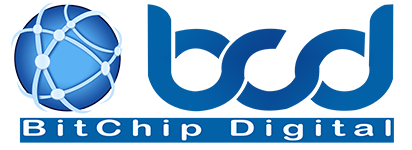
The digital marketing landscape never stays still. With new technologies, platforms, and consumer behaviors constantly reshaping the way people interact with brands, staying ahead of the curve is essential. For businesses aiming to remain competitive online, understanding the latest digital marketing trends can make the difference between standing out and being left behind.
AI-Powered Marketing Is Here to Stay
Artificial intelligence (AI) has become a driving force in nearly every aspect of digital marketing. From predictive analytics and automated ad targeting to AI-driven content creation and customer service chatbots, businesses are finding ways to streamline processes and personalize customer experiences. A digital marketing agency that understands how to leverage AI tools can help businesses maximize efficiency while still keeping a human touch in customer interactions.
The Rise of Short-Form Video Content
Platforms like TikTok, Instagram Reels, and YouTube Shorts have shown just how powerful short-form video can be. These bite-sized, engaging clips capture attention quickly and are highly shareable. In 2025, expect businesses to rely even more on video marketing as part of their overall content strategy. Brands that learn how to tell their story in under 60 seconds will have a strong advantage.
Voice Search and Conversational Marketing
As more households adopt smart speakers and voice assistants, optimizing content for voice search has become critical. Consumers are no longer just typing—they’re asking questions conversationally. This means businesses must adapt their SEO strategies to reflect natural language queries. A forward-thinking digital marketing agency will ensure that website content, local listings, and FAQs are structured to appear in voice search results.
Local SEO Remains a Priority
While digital marketing is global, many businesses depend on reaching customers in their immediate communities. Local SEO continues to evolve, with Google Business Profile updates, location-based advertising, and review management becoming crucial factors in visibility. Businesses that invest in local SEO will be better positioned to compete against larger, national brands.
Privacy and Data Protection Shape Marketing Strategies
With ongoing changes to data privacy laws and browser policies limiting third-party cookies, businesses are rethinking how they collect and use customer data. Transparency, consent, and first-party data collection are more important than ever. Digital marketers must balance personalization with privacy, ensuring that customer trust is maintained while delivering relevant experiences.
Omnichannel Marketing for Seamless Experiences
Consumers today interact with brands across multiple platforms—social media, search engines, websites, and even in-store. Businesses that provide a consistent message and user experience across all channels are more likely to build loyalty. An integrated approach that combines SEO, PPC, email marketing, and social media ensures no opportunity is missed.
Interactive and Immersive Content
Static content is no longer enough to engage audiences. Quizzes, polls, augmented reality filters, and interactive infographics are growing in popularity. These types of content keep users engaged longer, encourage sharing, and help brands stand out in a crowded digital space.
Final Thoughts
The digital marketing trends shaping 2025 reflect a balance between technology-driven innovation and customer-centric strategies. Businesses that embrace AI, short-form video, local SEO, and privacy-conscious practices will be better prepared for the future. Whether you’re working with a digital marketing agency or managing campaigns in-house, keeping up with these trends is essential for staying competitive.
